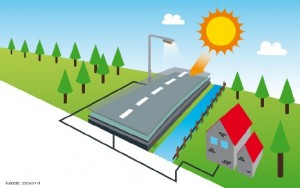
whether talking about a intelligent knowledge infrastructure, robert's global brain, or suresh's project matching for climate change initiatives, this article seemed useful.
Noah Raford
Large-scale participatory futures systems
Futurescaper is an online tool for making sense of the drivers, trends and forces that will shape the future. As a user interface system, it is horrible. As a tool for analyzing and understanding complex systems, it works pretty well. Several people asked me about this after my last post, so here is some more detail.
Following the logic of collective intelligence (as part of my my PhD), I broke up the the scenario thinking process into discrete chunks, came up with a system for analyzing and relating them together, and then distilled them into key outputs for helping the scenario development process: 1) Emergent Thematic Maps 2) Revealing Hidden Connections 3) Drilling Down
See Also by Noah Radford:
The Three Systems, an Overview
The first system is called “Futurescaper” and was developed in partnership with the International Futures Forum (IFF), Tony Hodgson and my friend Nathan Koren. This was piloted on a project for the UK Government, exploring secondary and tertiary impacts of climate change.
The second system is called “SenseMaker Scenarios.” This uses a customized version of Cognitive Edge’s SenseMaker Suite to aggregate micro-stories about the future into themes and patterns for scenario generation. This was done with Dave Snowden and Wendy Schultz, and was unveiled at the 2010 RAHS conference in Singapore.
The third system is called “FogCatcher”, and was developed with Anab Jain and Jon Ardern from Superflux. This was based on a modified version of Jerome C. Glenn’s futures wheel, combined with a “hot or not” style cross-impact analysis engine. As before, this approach benefited greatly from previous conversations with my colleagues above, but also from others such as Andrew Curry of the Futures Company, Emile Hooge of Nova7, Indy Johar of 00:/research, Vinay Gupta and others.
All three projects are still in continuous development and available for experimental project use.








